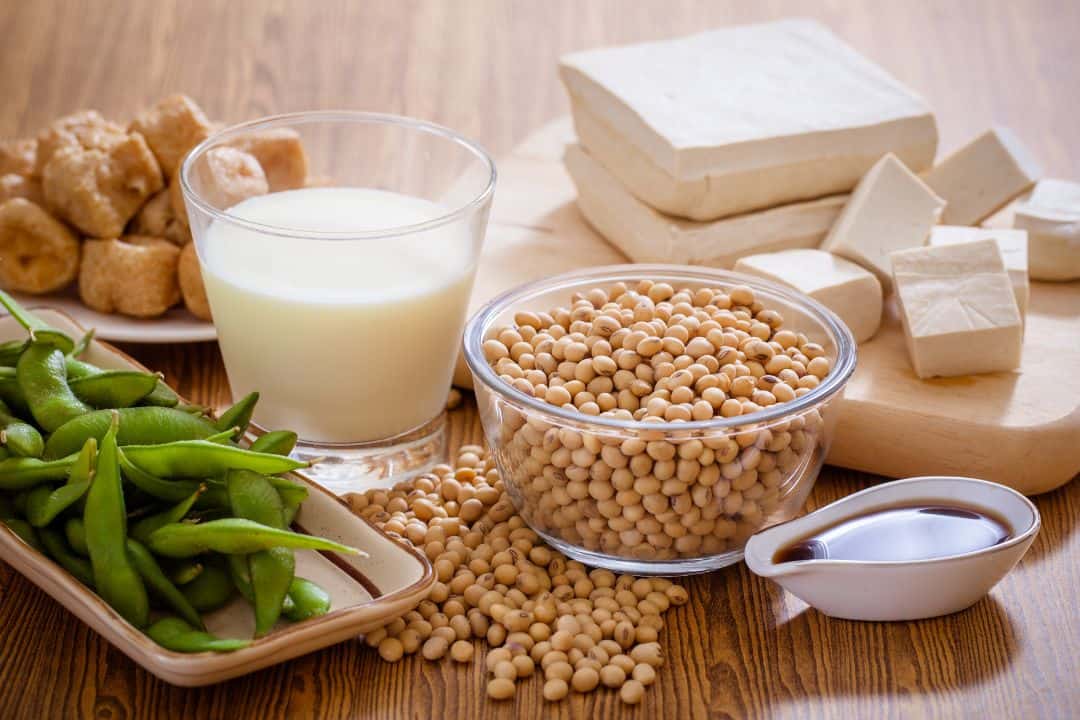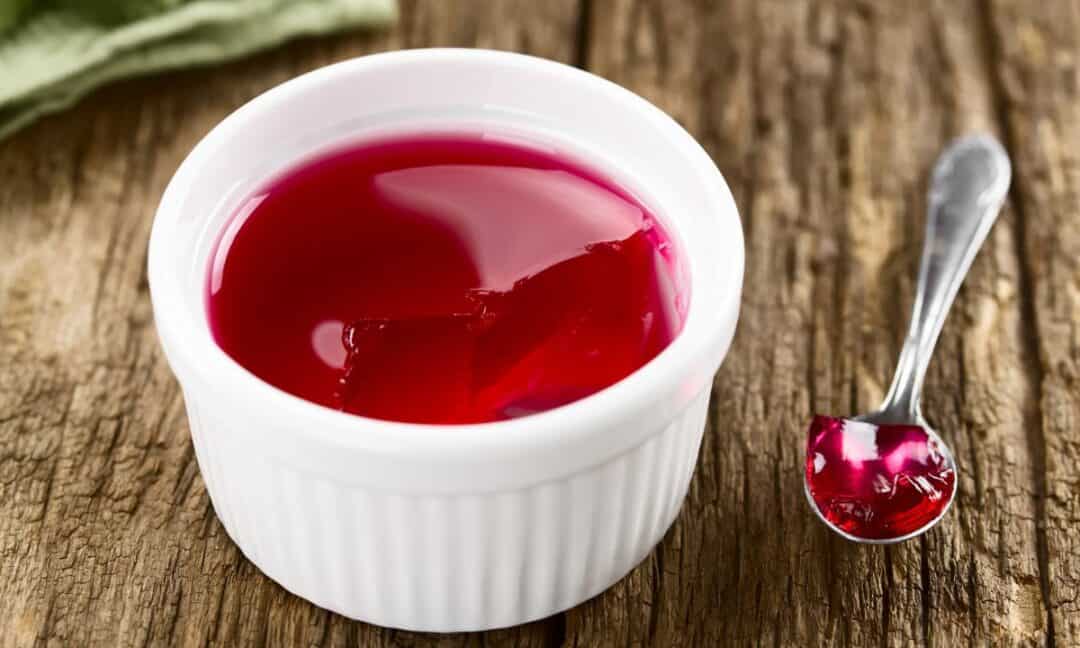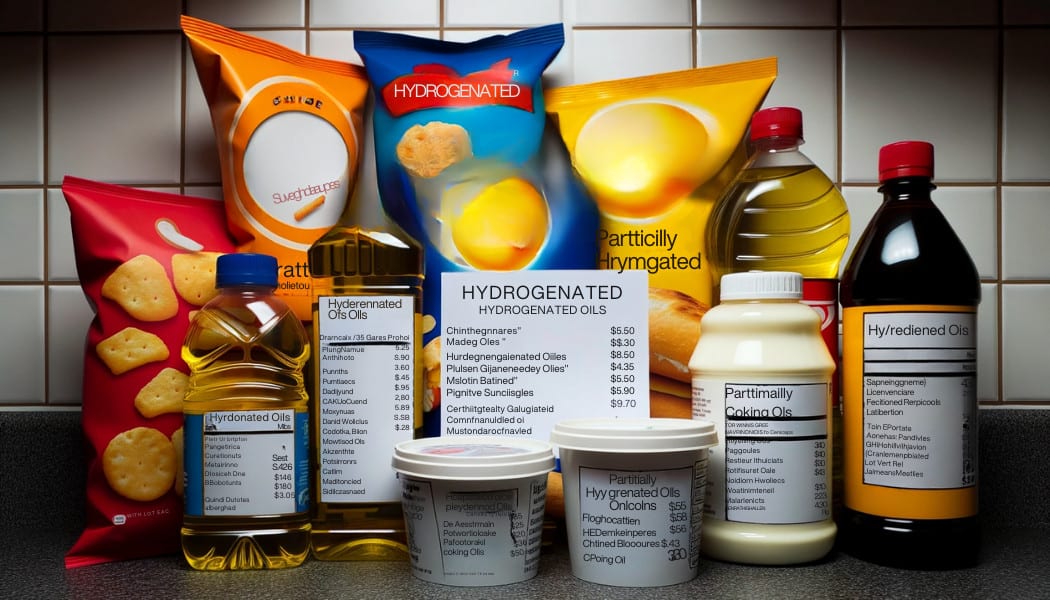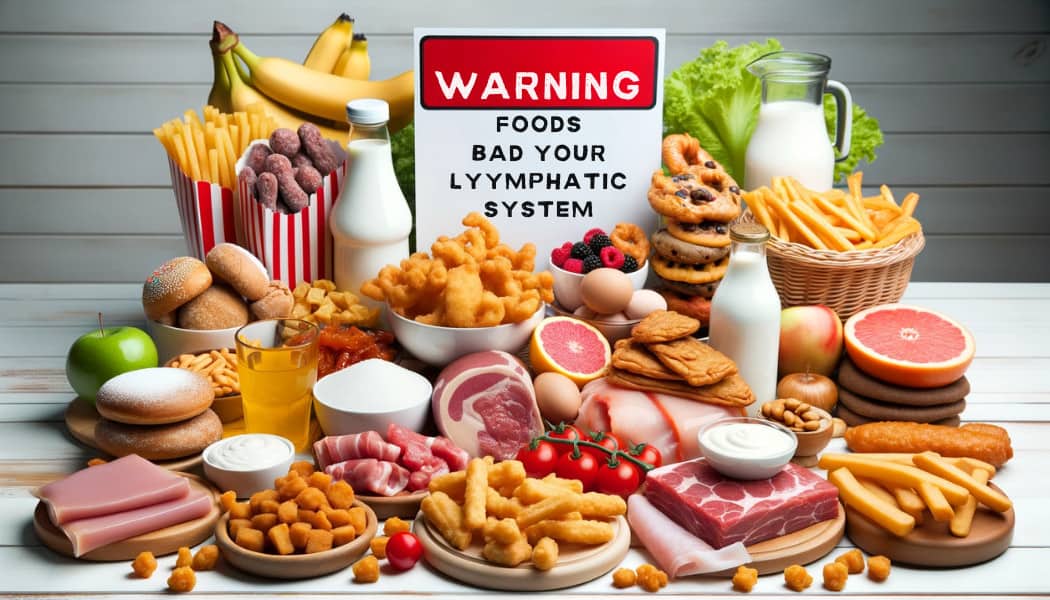23 Worst Foods for Lymphatic System: Lymphedema Diet
The lymphatic system, responsible for maintaining overall health and supporting the immune system, plays a crucial role in the human body. It helps remove toxins and waste while preventing lymphedema and ensuring a healthy gut. [verified12]
This system helps keep the body functioning correctly by circulating lymph throughout the bloodstream. A diet rich in processed meats, refined sugars, and fried foods is among the worst for the lymphatic system. [verifed34.]
The lymphatic system filters toxins, waste products, and pathogens from the body, supports immune function, and maintains a healthy gut. It is an essential part of the lymph system’s functioning.
Dietary choices play a crucial role in the health and functioning of the lymphatic system, including managing lymphedema and promoting proper drainage to reduce cellulite.
Dietary choices play a vital role in supporting the appropriate functioning of the immune system. Consuming unhealthy fats can hinder its condition.
Maintaining optimal lymphatic system health requires healthy dietary choices and well-balanced food that promotes lymphatic flow and drainage by incorporating specific types of healthy nutrition into your daily intake.
You can support the efficiency of your lymphatic system and enhance its ability to remove toxins, thus promoting lymphedema drainage and reducing cellulite. On the other hand, consuming foods detrimental to lymphatic function can lead to sluggishness and a compromised immune system.
This can affect the healthy drainage of lymphedema.
By understanding how these healthy foods affect our bodies, we can make informed dietary choices that promote optimal lymphatic system function and drainage. This is crucial for maintaining a robust immune system and preventing lymphedema.
23 Worst Foods for the Lymphatic System
Processed Meats: These often contain harmful additives, high levels of sodium, and other chemicals that can create an inflammatory environment.

2. Refined Sugars: Excess sugar can lead to inflammation and potentially burden the lymphatic system.

3. Artificial Sweeteners: Some believe these can cause inflammation or other adverse reactions.

4. Dairy Products: Some people have sensitivities to dairy, which can cause inflammation and mucus production.

5. Fried Foods: These are high in unhealthy fats, which can contribute to inflammation.

6. Soda & carbonated beverages: Are high in sugar and often contain artificial ingredients.

7. Alcohol: Excessive consumption can tax the liver, a key organ that works alongside the lymphatic system.

8 Caffeine: In excess, it can dehydrate, which might impede lymph flow.

9. Processed Oils: These include hydrogenated oils and trans fats, which can be pro-inflammatory.

10. Soy Products: Especially non-organic or genetically modified, might disrupt hormones and potentially lymphatic function.

11. Refined Grains: It can spike blood sugar levels and potentially lead to inflammation.

12. Artificial Preservatives & Additives: These might be hard for the body to process, potentially burdening the lymphatic system.

13. Canned Foods: Often high in sodium and sometimes contain BPA in the lining, which might impact health.

14. Table Salt: Excessive intake can lead to water retention and potentially impede lymphatic flow.

15. Red Meat: Red meat can be pro-inflammatory, especially when consumed in large quantities.

16. Gluten: Gluten can cause inflammation and other issues for those with sensitivities.

17. Pesticide-Residue Produce: It’s ideal to consume organic to reduce the intake of potential toxins.

18. Artificial Coloring: These chemicals might burden the body’s detoxification processes.

19. MSG (Monosodium Glutamate): Some people are sensitive to this flavor enhancer, which can lead to reactions.

20. Non-organic meats Animal Products: Non-organic meats might contain hormones and antibiotics that can affect lymphatic health.

21. Farmed Fish: Might contain pollutants and lower levels of beneficial omega-3s than wild-caught fish.

22. Artificial Flavorings: Chemicals that might not be ideal for lymphatic or overall health.

23. Hydrogenated and Partially Hydrogenated Oils: These trans fats are known to be pro-inflammatory.

Note that individual responses to foods can vary widely. While the above foods might be problematic for some, others might tolerate them without noticeable issues. It’s always a good idea to listen to your body and consult a healthcare professional or nutritionist about dietary choices.
The best foods for a healthy lymphatic system
Fresh Fruits and Vegetables

Fresh fruits and vegetables are packed with antioxidants, vitamins, and minerals crucial in supporting the lymphatic system and promoting healthy lymphedema drainage. These nutrients also help boost the immune system.
These healthy, nutrient-rich foods help to strengthen the lymphatic tissue and promote proper lymph flow for lymphedema drainage. They support a healthy immune system.
Citrus fruits like oranges, lemons, and grapefruits are particularly beneficial for maintaining a healthy lymphatic system and promoting lymphatic drainage due to their high vitamin C content. Vitamin C aids in boosting immune function and reducing inflammation.
Leafy greens such as spinach, kale, and broccoli provide essential nutrients that support a healthy immune system and overall lymphatic health.
Omega-3 Fatty Acids

Eating healthy foods rich in omega-3 fatty acids can help reduce inflammation within the lymphatic system. Incorporating healthy fats like salmon, chia seeds, flaxseeds, and walnuts into your diet can provide these beneficial omega-3s.
That supports the immune system and lymphatic functioning and promotes lymphatic drainage. These healthy fats support proper lymphatic functioning and drainage and have numerous other health benefits, such as reducing the risk of heart disease and promoting brain health.
Hydration with Water

Drinking plenty of water is essential for maintaining a healthy lymphatic system. Staying hydrated promotes healthy lymphatic function by facilitating lymphatic drainage, which helps flush out toxins from the body through the lymph fluid.
To maintain a healthy lymphatic system and support lymphatic drainage, aim to drink at least eight glasses of water per day or more if you engage in physical activity or live in a hot climate.
Green Tea

Green tea is a healthy beverage known for its powerful antioxidant properties that can benefit the entire body, including the lymphatic system. It contains compounds called catechins that have been shown to enhance immune function and reduce inflammation, promoting lymphatic drainage.
Enjoy a cup of green tea daily to reap potential benefits for your lymphatic health.
High-Fiber Foods
Including fiber-rich foods is important for maintaining a healthy lymphatic system. Fiber helps promote regular bowel movements, efficiently eliminating waste products from the body and supporting lymphatic function and drainage. Whole grains, legumes, nuts, and seeds are excellent sources of fiber that can support proper lymphatic function.
The negative effects of dairy products on the lymphatic system
Dairy products are often considered a staple in many diets, but they may not be the best choice. Here’s why:
Congestion within the lymphatic vessels
Consuming high amounts of dairy products can contribute to congestion within the lymphatic vessels. The lymphatic system plays a crucial role in removing waste and toxins from the body, but its ability to function optimally is compromised when it becomes congested.
This congestion can impede the flow of lymph fluid and hinder the removal of waste materials from tissues.
Increased mucus production
One of the primary concerns with consuming dairy products is their potential to increase mucus production in the body. Excessive mucus can clog up the lymphatic system and disrupt its normal functioning.
Overproduction of mucus can create a breeding ground for bacteria and other harmful pathogens, leading to inflammation and infection.
Sensitivity or intolerance to dairy
Some individuals may have a sensitivity or intolerance to dairy, which can further exacerbate problems within the lymphatic system. Consumption of conventional dairy products can trigger an inflammatory response in someone with such sensitivities.
This inflammation can affect various body parts, including the lymph nodes, causing them to become swollen and potentially leading to conditions like lymphedema.
It’s important to note that not everyone will experience these negative effects from consuming dairy products. Some people may tolerate dairy well without any noticeable impact on their lymphatic system.
However, reducing or eliminating dairy intake could benefit those who experience issues or want to support optimal lymphatic health.
Here are some alternatives you can consider if you’re looking to reduce your consumption of conventional dairy products:
- Plant-based milk: Opt for almonds, soybeans, oats, or coconut as an alternative to cow’s milk.
- Dairy-free cheese: Explore nut-based or soy-based cheeses that can provide a similar taste and texture without the dairy.
- Non-dairy yogurt: Look for yogurts made from coconut, almond, or soy milk as a substitute for traditional dairy yogurt.
By making these simple swaps, you can still enjoy your favorite dishes while potentially reducing the negative impact on your lymphatic system.
Red meat and its potential link to lymphoid malignancies
Several studies have suggested a possible association between red meat consumption and an increased risk of certain types of blood cancers that affect the lymphoid tissue.
While more research is needed to establish a definitive link, it’s worth considering the impact of red meat on our lymphatic system.
Processed meats, such as sausages or hot dogs, may contain additives that could negatively affect the functioning of the lymphatic system. These additives include preservatives, nitrates, and nitrites, which enhance flavor and extend shelf life.
However, these compounds have been associated with adverse health effects.
Choosing lean protein sources like poultry or fish instead of red meat may benefit overall health. These alternatives provide essential nutrients without the potential negative consequences of red meat consumption.
The Possible Association Between Red Meat Consumption and Blood Cancers
Research has hinted at a possible connection between consuming red meat and an increased risk of lymphoid malignancies. While these findings aren’t conclusive, they raise concerns about red meat’s potential impact on our health.
One study published in the International Journal of Cancer found that a higher intake of processed meats was associated with an increased risk of non-Hodgkin lymphoma (NHL).
Another study conducted by researchers at Yale School of Public Health observed a positive association between a high intake of well-done or barbecued meats and NHL risk.
Additives in Processed Meats That Could Affect Lymphatic System Functioning
Processed meats often contain additives that can harm our bodies, including the lymphatic system. For instance:
- Preservatives: Processed meats are commonly treated with preservatives like sodium nitrite or sodium erythorbate to inhibit bacterial growth and maintain color. However, excessive consumption of these preservatives has been linked to health issues such as cancer.
- Nitrates and Nitrites: These compounds are commonly used in processed meats to enhance flavor color and prevent bacterial growth. However, when these additives react with certain meat components during cooking or digestion, they can form potentially harmful nitrosamines.
- Heterocyclic Amines (HCAs) and Polycyclic Aromatic Hydrocarbons (PAHs): When meat is cooked at high temperatures or exposed to open flames, HCAs and PAHs can form. These compounds have been associated with an increased risk of cancer.
Choosing Healthier Protein Sources for a Healthy Lymphatic System
While red meat can be enjoyed in moderation as part of a balanced diet, it may be beneficial to prioritize lean protein sources like poultry or fish. These alternatives offer numerous health benefits without the potential risks of red meat consumption.
Here are some alternative protein sources you can consider:
- Poultry: Chicken and turkey are excellent sources of lean protein that provide essential amino acids without the potential drawbacks of red meat.
- Fish: Fatty fish like salmon, mackerel, and sardines provide high-quality protein and contain omega-3 fatty acids that support overall health.
- Plant-based Proteins: Incorporating plant-based proteins such as legumes (beans, lentils), tofu, tempeh, or seitan into your diet can offer a variety of nutrients while reducing reliance on animal products.
By making conscious choices about our dietary habits and opting for healthier protein alternatives, we can support the optimal functioning of our lymphatic system while enjoying delicious meals.
The impact of sugar and soda on lymphatic system function
Excessive sugar intake can have detrimental effects on the lymphatic system. Consuming high amounts of sugar can lead to inflammation throughout the body, including within the lymph nodes.
This inflammation hinders the proper functioning of the lymphatic system, which is responsible for removing waste and toxins from our bodies.
One common culprit in our diets is sugary beverages like soda. These drinks contain excessive amounts of sugar and contribute to dehydration. Dehydration impairs proper fluid balance within the lymphatic system, making it less effective in carrying out its essential functions.
So, when you reach for that sugary soda, remember that it affects your waistline and overall health.
Sugar-rich diets have been linked to obesity, a condition that can further strain the functioning of the entire circulatory system, including the lymphatic system.
Obesity increases pressure on blood vessels and lymph nodes, making it harder for them to filter and remove waste from the body properly. This puts additional stress on an already compromised lymphatic system.
Reducing our consumption of sugary foods and beverages is crucial to maintain a healthy lymphatic system and overall well-being. Here are some key points to keep in mind:
Limit your intake of sugary foods and drinks
- Cut back on sodas, energy, sports, and other sweetened beverages.
- Remember hidden sugars in processed foods such as breakfast cereals, granola bars, sauces, and condiments.
- Opt for healthier alternatives like water infused with fruits or herbal teas without added sugars.
Choose natural sweeteners over refined sugars
- Consider using natural sweeteners like honey or maple syrup instead of refined sugars.
- These alternatives provide some nutritional value along with sweetness.
Stay hydrated
- Proper hydration is essential for optimal lymphatic system function.
- Drink plenty of water throughout the day to keep your lymphatic system well-hydrated and functioning efficiently.
Opt for a balanced diet.
- Focus on consuming whole foods, including fruits, vegetables, lean proteins, and whole grains.
- These nutrient-rich foods support overall health and provide the necessary vitamins and minerals for a well-functioning lymphatic system.
By making conscious choices to reduce sugar intake and maintain a healthy lifestyle, we can support the proper functioning of our lymphatic system. Remember, it’s not just about avoiding sugar; it’s about nurturing our bodies with wholesome foods that promote overall wellness.
The detrimental effects of processed and packaged foods on the lymphatic system
Processed and packaged foods have become a staple in many people’s diets due to their convenience and accessibility. However, these foods can harm the lymphatic system, crucial in maintaining overall health and immunity.
High Levels of Sodium, Preservatives, and Artificial Additives
One of the main culprits behind the negative impact of processed and packaged foods on the lymphatic system is their high sodium content, preservatives, and artificial additives.
These substances can disrupt lymphatic function by causing fluid retention and swelling in the body. Excessive amounts of sodium can lead to water retention and strain the lymphatic system as it tries to remove excess fluid from tissues.
Lack of Fiber
Another issue with processed and packaged foods is their low fiber content. Fiber is essential for maintaining healthy digestion and preventing lymphatic congestion.
Consuming foods low in fiber, such as refined grains or sugary snacks, can lead to sluggish digestion and a buildup of waste products in the body. This buildup stresses the lymphatic system as it tries to eliminate toxins from our system.
Chronic Inflammation
Regular consumption of processed and packaged foods has been linked to chronic inflammation throughout the body.
Chronic inflammation negatively impacts the lymphatic system by impairing its ability to clear waste products and toxins from tissues efficiently. This can result in tissue damage over time, leading to various health issues.
Trans Fats and Fried Foods
Trans fats found in many processed foods are highly detrimental to overall health, including the proper functioning of the lymphatic system. These unhealthy fats contribute to weight gain and promote inflammation within our bodies.
Fried foods are particularly problematic as they often contain trans fats and other harmful substances that can further burden our lymphatic system.
Impact on Digestive Health
The lymphatic system works closely with the digestive tract to remove waste products and toxins from our bodies. However, processed and packaged foods can damage the digestive system, impairing lymphatic function.
These foods are often low in nutrients and high in unhealthy fats, sugars, and additives that disrupt the delicate balance of our gut microbiome. This disruption can hinder the proper functioning of the lymphatic system.
Salt and high-sodium foods: harmful choices for lymphatic health
Excessive salt intake can have detrimental effects on the lymphatic system. Consumption of high amounts of sodium can lead to water retention and swelling, which puts additional strain on the lymphatic system.
This strain can cause the lymph nodes to become swollen and hinder their ability to filter toxins from the body effectively.
One of the main concerns with excessive salt consumption is its potential contribution to developing edema or fluid buildup in the tissues. Edema occurs when there is an imbalance in fluid levels within the body, leading to swelling and discomfort.
The lymphatic system plays a crucial role in maintaining proper fluid balance, so when we overload it with sodium, it becomes overwhelmed and struggles to keep up.
Reducing salt intake is essential for maintaining proper fluid balance within the body’s lymphatic system. By making healthier dietary choices and opting for low-sodium alternatives, we can support our lymphatic health and reduce the risk of developing edema or other related conditions.
Pros:
- Reducing salt intake helps maintain proper fluid balance in the lymphatic system.
- Low-sodium alternatives can be just as flavorful as their high-sodium counterparts.
- A diet low in sodium promotes overall heart health and lowers blood pressure.
Cons:
- It may be challenging to reduce salt intake initially due to cravings or habits.
- Processed foods often contain hidden sources of sodium that are hard to identify.
- Some people may initially find low-sodium options less satisfying but can adjust over time.
While cutting back on salty foods is crucial, it’s important not to eliminate all types of salt from our diets entirely. Our bodies still need some amount of sodium for various bodily functions. Instead, focus on reducing excessive consumption by avoiding highly processed foods that tend to be loaded with sodium.
Opting for fresh fruits and vegetables instead of packaged snacks is an excellent way to reduce sodium intake. Using herbs and spices to season our meals can add flavor without relying on salt.
Experimenting with different flavors and trying out new recipes can make the transition to a lower-sodium diet more enjoyable.
Understanding the importance of a balanced diet for lymphatic system well-being
A well-functioning lymphatic system is crucial for maintaining overall health and preventing diseases. As discussed in the sections completed before this conclusion, certain foods can negatively affect the lymphatic system.
It is important to prioritize a balanced diet that supports its optimal functioning.
Consuming nutrient-rich foods such as fruits, vegetables, whole grains, lean proteins, and healthy fats can provide the essential vitamins, minerals, antioxidants, and fiber needed for a healthy lymphatic system.
These foods help reduce inflammation, support detoxification processes, and boost immune function – all vital to maintaining lymphatic health.
To further enhance your lymphatic system’s well-being, limiting or avoiding certain food groups shown to have detrimental effects is advisable. Dairy products can be particularly problematic due to their potential to increase mucus production and inflammation within the lymph nodes.
Red meat has also been associated with an increased risk of lymphoid malignancies.
In addition to dairy and red meat, it is essential to be mindful of your sugar intake. High sugar and excessive soda consumption can impair lymphatic system function by promoting inflammation and potentially hindering detoxification.
Processed and packaged foods should also be minimized as they often contain harmful additives that can negatively impact lymphatic health.
Finally, excessive sodium intake from salt and high-sodium foods should be avoided as it can contribute to water retention and bloating, putting strain on the lymphatic system.
By adopting a balanced diet rich in wholesome foods while avoiding or minimizing those that negatively affect your lymphatic system’s well-being, you are taking proactive steps toward supporting its optimal function.
FAQs: Worst Foods for Lymphatic System
Can I still consume dairy if I want a healthy lymphatic system?
👉 While some individuals may tolerate dairy without adverse effects on their lymphatic system, limiting or avoiding dairy products is generally recommended.
Dairy has been shown to increase mucus production and inflammation within the lymph nodes, potentially hindering their proper function.
Is it necessary to eliminate red meat from my diet?
👉 While evidence suggests a potential link between red meat consumption and an increased risk of lymphoid malignancies, it is not necessary to eliminate red meat from your diet. Moderation is key.
Opt for lean cuts of beef and consider incorporating other protein sources such as legumes, fish, poultry, and plant-based alternatives.
Can I still enjoy sweet treats while supporting my lymphatic system health?
👉 Moderation is crucial. High sugar intake can promote inflammation and hinder detoxification processes in the lymphatic system. Consider healthier alternatives like fresh fruits or homemade desserts using natural sweeteners like honey or maple syrup.
What should I look out for when choosing processed or packaged foods?
👉 When selecting processed or packaged foods, it’s important to read labels carefully. Look out for harmful additives such as artificial preservatives, colorings, flavorings, high sodium levels, trans fats, and refined sugars.
How can I reduce my sodium intake without compromising taste?
👉 To reduce sodium intake without sacrificing flavor, use herbs and spices instead of relying on salt alone to season your meals. Experiment with different combinations to naturally enhance the taste of your dishes.

Born and raised in a family of foodies, Georgia’s passion for cuisine was nurtured from a young age as she learned the intricacies of flavor and texture from her grandmother’s kitchen. As an adult, this early fascination blossomed into a full-fledged love affair with the culinary world.







